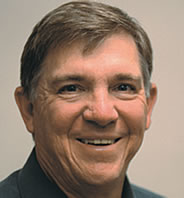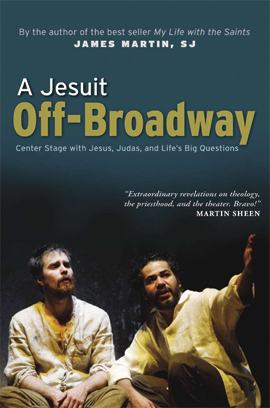"Rickles' Book,"
by Don Rickles with David Ritz
Okay, I admit it. I never respected Don Rickles or his brand of humor. Insulting people so that other people laugh at them seems a cheap way to make a living, so I put Don Rickles -- the king of insults -- a cut or more below comics I admired.
His memoir, however, sheds light on a different Don Rickles.
His struggle to survive as an entertainer, his willingness to accept any kind of work on stage and work long hours, his gratitude to the people who gave him opportunities, his humility, his faith life (as a Jew) and his faithfulness in marriage are all cause for admiration.
Don Rickles, who belittles celebrities and non-celebrities alike, turns out to be a loving son -- one who adored his father and who lived with his widowed mother for many years; their family stories betray a mutual caring for one another, and the comedian shows a soft side in recalling how his mom stood behind him -- and even gave his career a push.
Living in Miami at one point, Etta Rickles makes it her business to make friends with Dolly Sinatra, mother of you-know-who, who also happens to be in Miami. "It would be great if you could get Frank to go see Don," Etta Rickles tells Dolly. Franks shows up where Don is performing, Don insults him, Frank loves it and the two become friends. Friendship with Frank Sinatra opens doors for Rickles.
Short chapters -- Rickles' many stops on the way up the ladder in the entertainment field and anecdotes about the stars whose lives touch his -- make this an easy and interesting read.
Sprinkled throughout the book are examples of cutting remarks that are the lifeblood of Rickles' routine. I still don't appreciate the shots Rickles takes at overweight people in the crowd or people with odd clothing. But there a couple of good lines he gets off at the expense of some Hollywood stars. "You'd be great," he tells Clint Eastwood, "if you'd ever learned to talk normal and stop whispering."
And he zings Bob Hope and his USO Tours. At one of the Dean Martin Roasts, Hope walks in while Rickles is doing his routine. Thinking-on-his-feet, Rickles says, "Bob Hope is here. I guess the war is over."
Rickles, who on stage seems to have no respect for anyone, shows an enormous respect for the talent of others in the entertainment field, and his ability to win their respect -- people like Jackie Gleason, George Burns and closest friend Bob Newhart -- is evidence that the Rickles in this book deserves respect himself. -- bz
Subscribe to:
Post Comments (Atom)



No comments:
Post a Comment